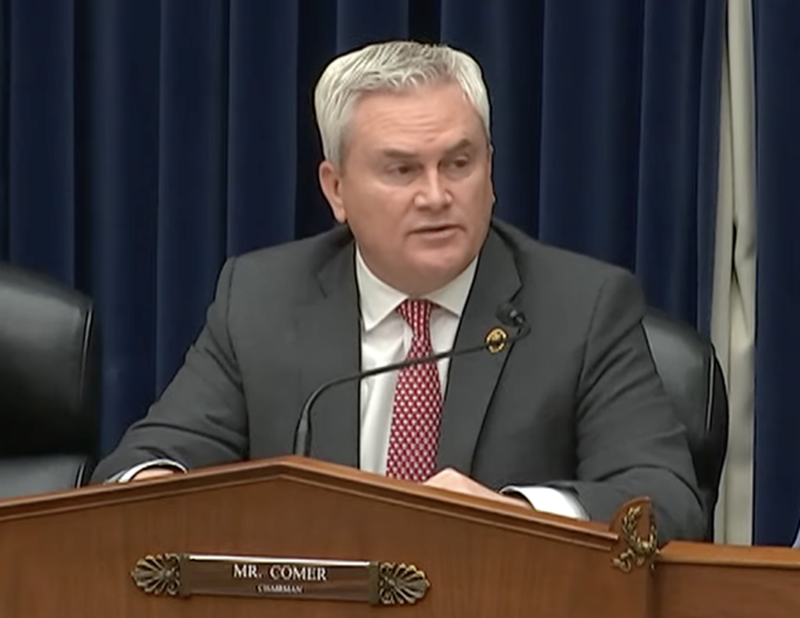With negotiations over a budget reconciliation package still in flux, House Republicans have doubled down on their commitment to implement Department of Government Efficiency reforms that would reduce the size, scope, and spending of the federal government.
During a contentious hearing held by the Committee on Government Oversight and Reform, lawmakers and policy experts went back and forth over what DOGE reforms have so far amounted to, and whether “rightsizing” the government should include cuts to federal personnel, funding programs, or entire agencies.
Chairman Rep. James Comer, R-Ky., accused Democrats of “sensationalizing” President Donald Trump’s plans to reduce waste and inefficiency and argued that Congress should get on board with reform efforts.
“Real innovation is not clean and tidy. It’s necessarily disruptive and messy. But that’s exactly what Washington needs right now,” Comer said at the Wednesday meeting. “Congress has been immune from that for a long time. But the day has come, and the American people have spoken.”
Some of Trump’s measures to cut government spending have included partially shutting down USAID foreign aid programs and ending all diversity, equity and inclusion programs in the federal government.
Thomas Schatz, president of Citizens Against Government Waste, agreed with Republicans in his testimony before the committee, adding that one of the biggest causes of wasteful government spending that they should target is the duplication and overlap of federal programs.
“Success should be measured by whether the intended results are being achieved. If that does not occur, the program should be reevaluated to determine if it needs to be modified, consolidated with another program, or terminated,” Schatz argued. “The solution should not be to create another program or duplicate what the private sector is already doing.”
Trump is already reportedly planning to abolish the Department of Education, commenting that education decisions and structuring should be handled on the state and local level rather than a federal agency.
The White House also recently announced it will trim the federal workforce through buyouts and ending remote work options, estimating these actions will prompt 5% to 10% of federal employees to exit.
While DOGE supporters say this will cut bureaucratic bloat, William Resh from the USC Price School of Public Policy argued that cutting the federal workforce will actually decrease government efficiency, calling DOGE an “ideological agenda that seeks to dismantle professional government in favor of a more centralized, loyalty-based model.”
“Rather than a bloated bureaucracy, we face a workforce stretched thin, forced to oversee an increasingly complex web of outsourced operations with limited personnel and resources,” Resh testified before the committee.
“The long-term solution is not simply to reduce the number of federal employees or further outsource services but to reinvest in building a workforce that is capable of managing, regulating, and overseeing the extensive network of private vendors upon which the government now depends,” he added.
Excluding the 1.3 active-duty military personnel and 600,000 U.S. Postal Service employees, the government employs about 2.4 million federal workers, according to a 2024 Pew Research report.
Committee member Rep. Michael Cloud, R-Texas, pushed back on Resh’s statements.
“Anytime we have an agency that’s underperforming, they’ll come before us and the thing they’ll always ask for is more money, more power to fix the problem that oftentimes they created,” said Cloud. “This is a paradigm that we have to change…this is really what DOGE is about.”







